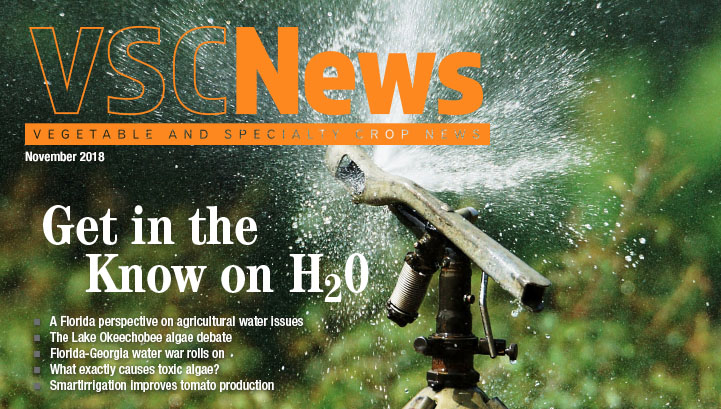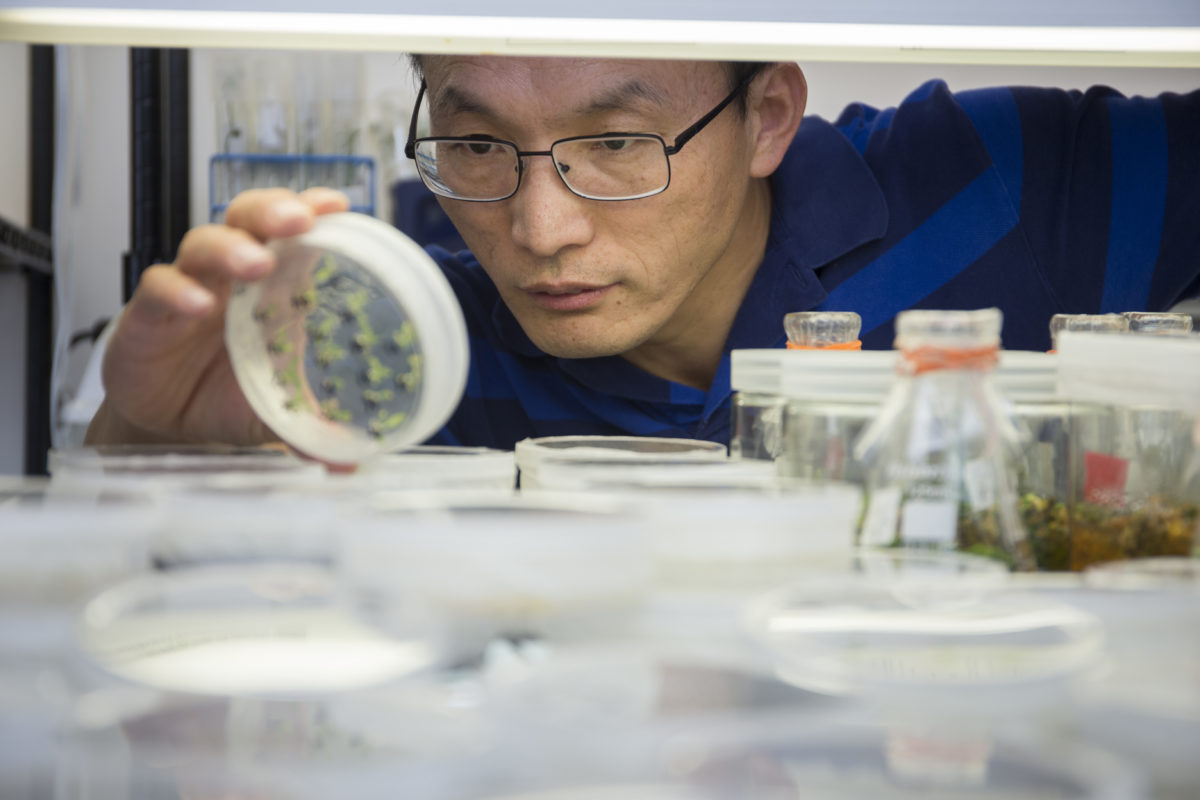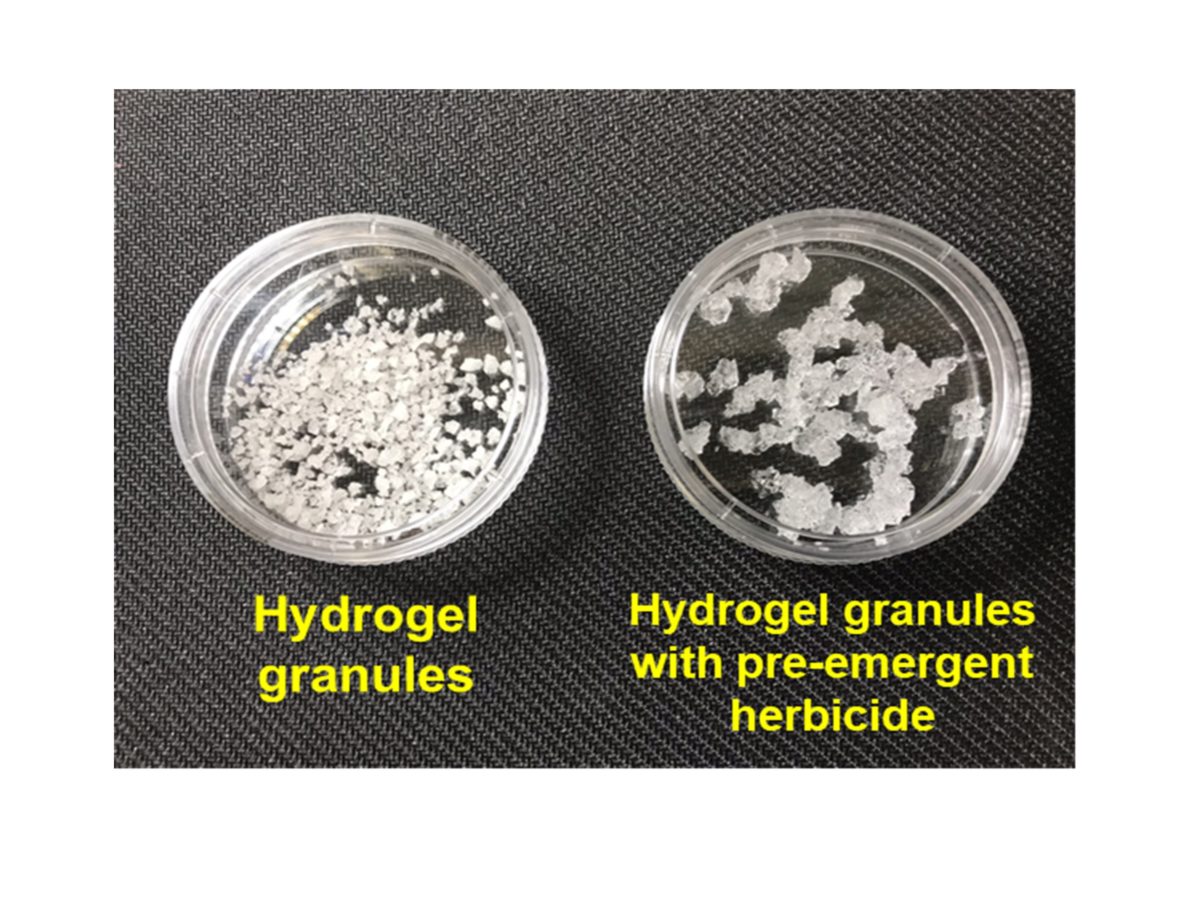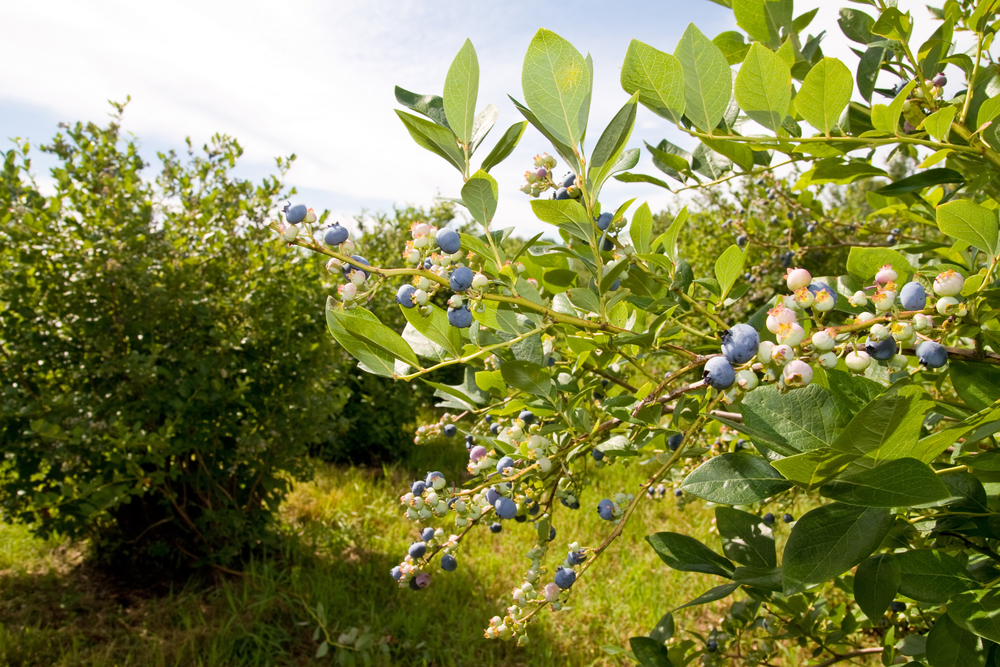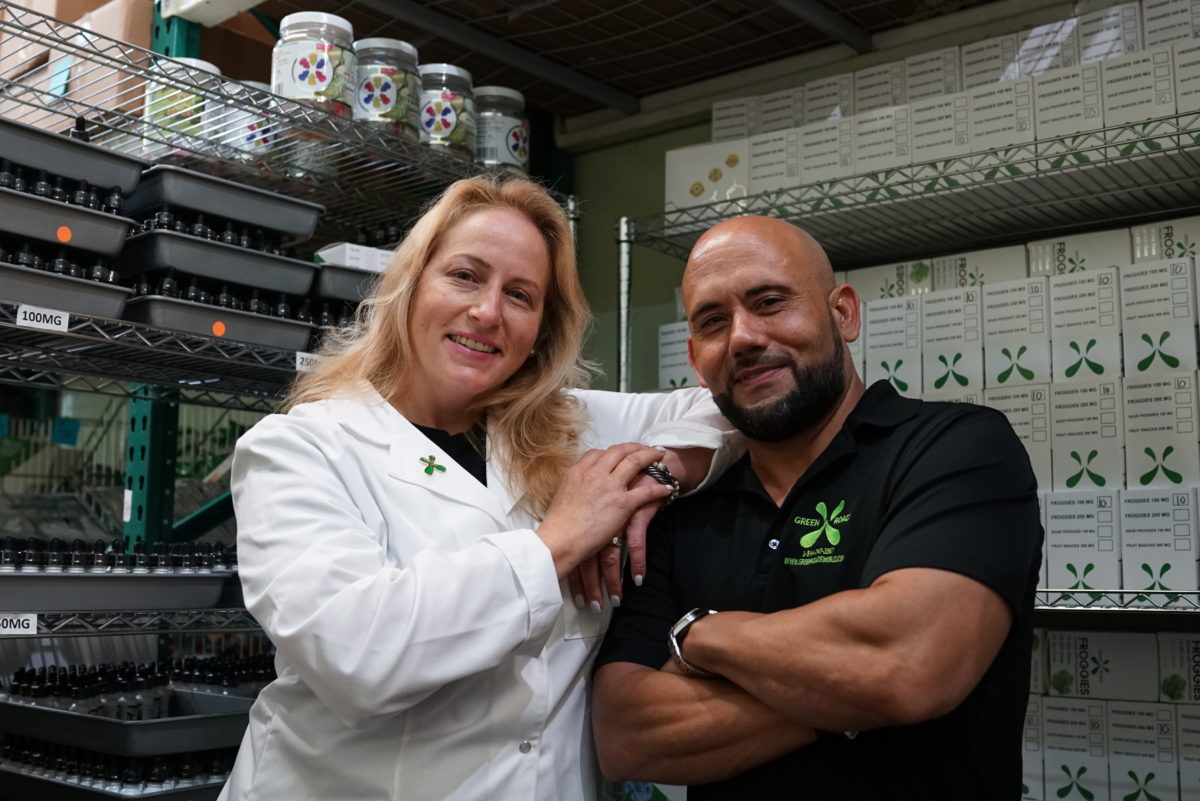Get in the know on H2O with the November issue of VSCNews magazine. Water is a crucial aspect of agriculture in the Southeast, and the November magazine will give readers an update on ongoing water issues and a new irrigation technology. As the Florida population grows, water resources become scarcer, creating a challenge for the state’s agriculture industry. Rich Budell, …
UF/IFAS Earns Record $166 Million for Research to Help Solve Critical Issues
Funding for research projects from federal, state and private sources at the University of Florida Institute of Food and Agricultural Sciences hit a record $166 million in fiscal year 2017-2018. Grant support underwrites programs that include feeding a hungry world, improving nutrition among at-risk populations and ensuring sufficient safe water for a growing global population. As just a few examples …
Hydrogels as Herbicide Carriers in Vegetable Plasticulture
By Ramdas Kanissery and Camille McAvoy Weed management is a fundamental step in the successful production of vegetable crops in Florida under commercial plasticulture production systems. Soil fumigation was one of the most successful means of reducing weed populations. None of the alternatives to methyl bromide have a broad spectrum of activity against weeds. This necessitates the need for a …
Gibberllic Acid Tested on Southern Highbush Blueberries
By Breanna Kendrick Gibberellic acid (GA) is a plant growth regulator that is used to increase fruit size and quality. Researchers know that it works on rabbiteye blueberries recovering from freeze damage when flower parts were injured and weren’t able to be pollinated. Juanita Popenoe is a multi-county fruit production agent for the University of Florida for Marion, Orange and …
Late Blight: Centuries-Old Pathogen with Deadly Impacts
Late blight is a deadly, chronic pathogen that occurs annually in potato and tomato crops. Pam Roberts, a professor of plant pathology at the University of Florida, dubbed it a “disease of distinction” during her presentation at the 2018 Citrus Expo. According to Roberts, there is a variety of factors that can contribute to a late blight infection. Once a …
The Search for an Alternative Blueberry Chemical
By Breanna Kendrick Alternative chemicals are being researched to replace hydrogen cyanamide, a plant growth regulator that is used in Florida on blueberries to improve fruit earliness and develop more concentrated fruit set. Shinsuke Agehara, University of Florida Institute of Food and Agricultural Sciences assistant professor at the Gulf Coast Research and Education Center in Balm, is conducting research on …
Program Vows to Create Peach Variety Ideal for the Lower Coastal Plain
A program based in Byron, Georgia, is working on developing peach varieties perfect for the lower coastal plain. Now, the lower coastal plain consists of growers in South Georgia and a few in North Florida. However, according to Tom Beckman, U.S. Department of Agriculture research horticulturist, this industry could grow tremendously. He says it has the potential to stretch through …
Locally Grown Pomegranate Varieties in Florida Are Promising for the Future
Ali Sarkhosh, assistant professor and Extension specialist at the Horticultural Sciences Department at the University of Florida, is researching how well pomegranates will grow in Florida’s climate. The economic potential for growing pomegranates in Florida is currently unknown at this time. Research continues on the possibility of finding pomegranate cultivars that can grow in Florida. Florida’s wet season, accompanied by hot …
UF Industrial Hemp Program Promotes Industrial Partnerships to Grow
GAINESVILLE, Fla. — The University of Florida’s pilot research program to explore the potential to grow industrial hemp across the state is advancing, with the engagement of an inaugural private partner. The initiative was supported and encouraged by the state but was not appropriated any funding. To move forward, the project needs sponsorships from private industry. Green Roads Inc. has …
Varroa Mite Control Efforts Continue
By Breanna Kendrick Varroa mites have been in the United States since 1987, but there’s still not a good solution for controlling them. These mites impact honeybee colonies by feeding on the bees and vectoring viruses. The mites pass viruses around the colonies and make the bees very sick. Varroa control is tricky because the goal is to kill an …










